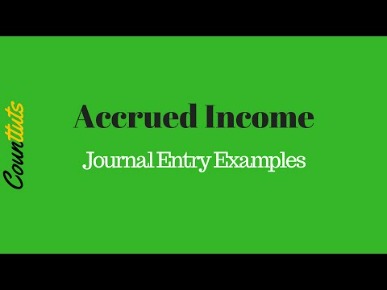Explaining the Debate Surrounding President Trumps Payroll Tax Deferral
Content

The https://intuit-payroll.org/ notes interest, penalties, and additions to tax will begin to accrue if amounts are not paid by May 1, 2021. The EO does not affect Social Security’s Trust Funds, as the taxes are only deferred.
- “Unilaterally eliminating the payroll tax and ignoring Congress’s power of the purse on funding unemployment insurance will do nothing to help Americans recover,” Representative Maxine Waters, chair of the House Financial Services Committee, said in a statement.
- But Congress and Trump — in December 2020 — enacted into law a provision allowing employers to withhold those dollars over the entirety of 2021.
- When completing line 8 of Form 8974, employers should not include any qualified sick leave wages reported on line 5a, or qualified family leave wages reported on line 5a, of Form 941.
Many American businesses are disregarding President Trump’s order allowing them to temporarily stop withholding Social Security taxes from their employees’ paychecks. The plan, they say, is confusing and won’t produce real savings for their companies or their workers. Unfortunately for government employees, the government, including the military, did take Trump up on his idea in 2020.
Build a custom email digest by following topics, people, and firms published on JD Supra.
He was published in every major newspaper in Florida while working his way through Florida State University. Debt.org wants to help those in debt understand their finances and equip themselves with the tools to manage debt.

The main problem with this approach is that the payroll tax deferral could easily become a financial planning nightmare with paychecks slashed by a total of up to $2,232 between January and April. More than 50 percent of Americans live paycheck-to-paycheck and may struggle when their take-home pay is suddenly cut on January 1. The problem is even more acute in the military, where a HarrisX surveyconductedlast year found that 68 percent were living paycheck-to-paycheck at least every other month and more than half were doing so consistently each month. Therefore, the deferral itself does not result in an overpayment of taxes reported on Form 1040. However, if a household employer is eligible for advanceable paid leave credits under the FFCRA and reports those credits on Schedule H, Form 1040, the taxpayer may receive a refund of the paid leave credits even while deferring the employer’s share of Social Security tax. This does not apply to credits for sick leave and family leave equivalent amounts for self-employed individuals. Employers claiming the Research Payroll Tax Credit must file Form 8974, Qualified Small Business Payroll Tax Credit for Increasing Research Activities and must attach it to their employment tax return .
Criticism of the Executive Order
A full-time worker making $15 per hour would get approximately $37 more per week, $149 more per month, and $670 by the end of the year. For someone making $25 per hour, the savings will be about $62 per week, $248 per month, and $1,116 through December. Self-employment tax is the tax that a sole proprietor or freelancer must pay to the federal government to fund Medicare and Social Security.
Sen. Warren on economy, immigration and Social Security – PBS NewsHour
Sen. Warren on economy, immigration and Social Security.
Posted: Wed, 22 Feb 2023 23:40:55 GMT [source]
On August 8, Trumps Payroll Tax Deferral Goes Into Effect Trump signed an Executive Order, Deferring Payroll Tax Obligations in Light of the Ongoing COVID-19 Disaster, which deferred the employee portion of Social Security payroll taxes for certain individuals. On August 28, Treasury Department released guidance providing additional detail for the implementation of this Executive Order. The system is more complicated for reservists and members of the National Guard. I agree with those who express concerns about the payroll tax deferral’s effects on Social Security. The concerns ring somewhat hollow, however, in the context of lawmakers’ ongoing, increasing unwillingness to correct the growing imbalance between Social Security’s benefit and tax schedules. Failing to collect payroll taxes certainly undermines Social Security’s future solvency, but so too does lawmakers’ continuing refusal to balance Social Security’s accounts. Federal lawmakers have scheduled Social Security benefit payments far exceeding what the current payroll tax rate can fund.
What deposits and payments of employment taxes are employers entitled to defer?
No, employers have the flexibility over the first four months of 2021 to withhold in installments and remit on a prorated basis the Social Security payroll taxes that were deferred during the last four months of 2020. The EO provides temporary relief for employers from the obligation to withhold and pay the employee portion of Social Security payroll taxes for certain employees. President Trump has advocated, even before the pandemic, for an employee-side payroll tax cut. The Trump administration argued that a reduction in the employee-side payroll tax would result in a larger economy by increasing the after-tax returns to work. President Trump signed executive memoranda allowing firms to defer withholding their employee’s payroll tax.
- As such, employers considering implementing this payroll tax deferral option should consult with their legal counsel and payroll tax professionals so as to determine the feasibility and legalities of such implementation.
- Joel L. Naroff is the president and founder of Naroff Economic Advisors, a strategic economic consulting firm in Bucks County.
- Given the potential pitfalls, it appears many firms will choose not to participate in the deferral.
- (That’s based on 40 hours per week at $50 per hour.) The $4,000 cap also means that the $137,700 wage base limit for Social Security taxes doesn’t come into play.
- Last Friday, the IRS released guidance on how employers are to administer the deferral.
- If employees leave their job, their employer is still on the hook for repayment of deferred payroll taxes.
When completing line 8 of Form 8974, employers should not include any qualified sick leave wages reported on line 5a, or qualified family leave wages reported on line 5a, of Form 941. In no case will employers be required to make a special election to be able to defer deposits and payments of these employment taxes. However, the employer should report the deferred taxes on the appropriate line on its employment tax return, such as line 13b on Form 941. The payroll tax deferral was intended to goose the economy by temporarily giving workers more money in their paychecks by deferring the 6.2 percent of wages that companies normally withhold to help fund Social Security. But executives are spooked by the complexities involved in enacting the plan and the possibility that their workers — or the companies themselves — could face unexpected tax bills next year when the deferral expires. A third option for President-elect Biden would take a more Goldilocks approach.
